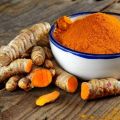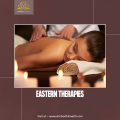5 Natural Remedies to Relieve Anxiety

Anxiety disorders are the most commonly diagnosed mental illness. On the other hand, anxiety is a natural feeling that every person experiences. It is important to understand the difference between the first and second, and take action accordingly.
For a disorder diagnosis, anxiety should affect a person's day-to-day functioning. Anxiety that limits a person's ability to work, socialize, or function in society is generally considered a moderate to severe anxiety disorder.
In general, anxiety is a feeling associated with fear. It is an adaptive response that allows humans to function within their environment. These natural remedies to reduce anxiety can help people with mild to moderate symptoms. Before you start using them, analyze your mental state well, and better consult an anxiety doctor.
1. Medicinal herbs
There is evidence to suggest that natural and herbal remedies can alleviate feelings of anxiety. However, it is unclear whether the results are related to the real action or the placebo effect. In a clinical study, supplements containing the following elements showed good results:
- Passionflower;
- Intoxicating pepper (kava);
- L-lysine;
- L-arginine;
- Magnesium.
There are other herbs and supplements that have been studied for their effects on anxiety. For example, in a double-blind, randomized clinical trial, omega-3 fatty acids were found to reduce anxiety. However, remember that some supplements should not be combined with medications prescribed by a specialist.
2. Healthy food
In addition to herbs and supplements, there are many natural products that contain anxiety-reducing ingredients. Ideally, nutrients come from natural and organic foods.
There are foods that help release neurotransmitters in the body, such as serotonin and dopamine (hormones of happiness):
- Avocado;
- Almond;
- Asparagus;
- Leafy greens, nuts, seeds, legumes, and whole grains that contain magnesium;
- Salmon and other fatty fish;
- Pickled cucumbers, sauerkraut and kefir;
- Beans, berries, nuts and vegetables are high in antioxidants;
- Oysters, cashews, beef and egg yolks contain zinc.
3. Yoga and meditation
Yoga is a natural remedy for anxiety that combines body movement, breathing and concentration. There is evidence to suggest that yoga may help calm the stress response that contributes to feelings of anxiety.
In addition, mindfulness meditation reduces anxiety symptoms after eight weeks of practice. In general, meditation can be defined as the practice of being aware of the present moment. Any activity that involves awareness of the body and breath can be considered meditation.
4. Walks
Fresh air has a calming effect on our body and mind. For best results, try to walk outside at least 3 times a week for 20-30 minutes.
In addition to reducing anxiety, these walks bring other benefits: - Lowering blood pressure; - Reducing stress; - Reduced anxiety; - Strengthening the immune system; - Increasing self-esteem; - Mood improvement.
Ecotherapy is a form of therapy that links the health of the planet with the health of people. Forms of eco-therapies such as green space and wildlife therapy have been correlated with increased life expectancy and reduced mental disorders.
5. Activation of the five senses
While walking, try to use all your senses. This is another method of mindfulness practice.
- Vision. Observing nature reduces anxiety, stress, and heart rate;
- Hearing. Listening to nature sounds or silence can lower blood pressure and cortisol levels;
- Touch. Touching plants, walking barefoot on the grass, feeling the breeze on the skin, swimming in open water - this practice of contact with nature (thermoception) has a beneficial effect on the state of the human psyche;
- aste. Eating more natural foods - whole grains, fruits, vegetables - helps to strengthen the connection of a person with nature;
- Smell has a significant influence on emotions, behavior, and thoughts.
While walking in a park or forest, try the following mindfulness exercise. As you focus on each feeling, take a moment to dive into the integrated experience consciously. For example, stop, listen to the birds, concentrate on the feeling of the breeze on your skin, smell the grass or flowers, and taste the apple you brought. This is what awareness is about.
Other articles and publications:
Articles and publications of other companies:
- +1 (646) 270-9836
- Long Island City
- grantny.com













